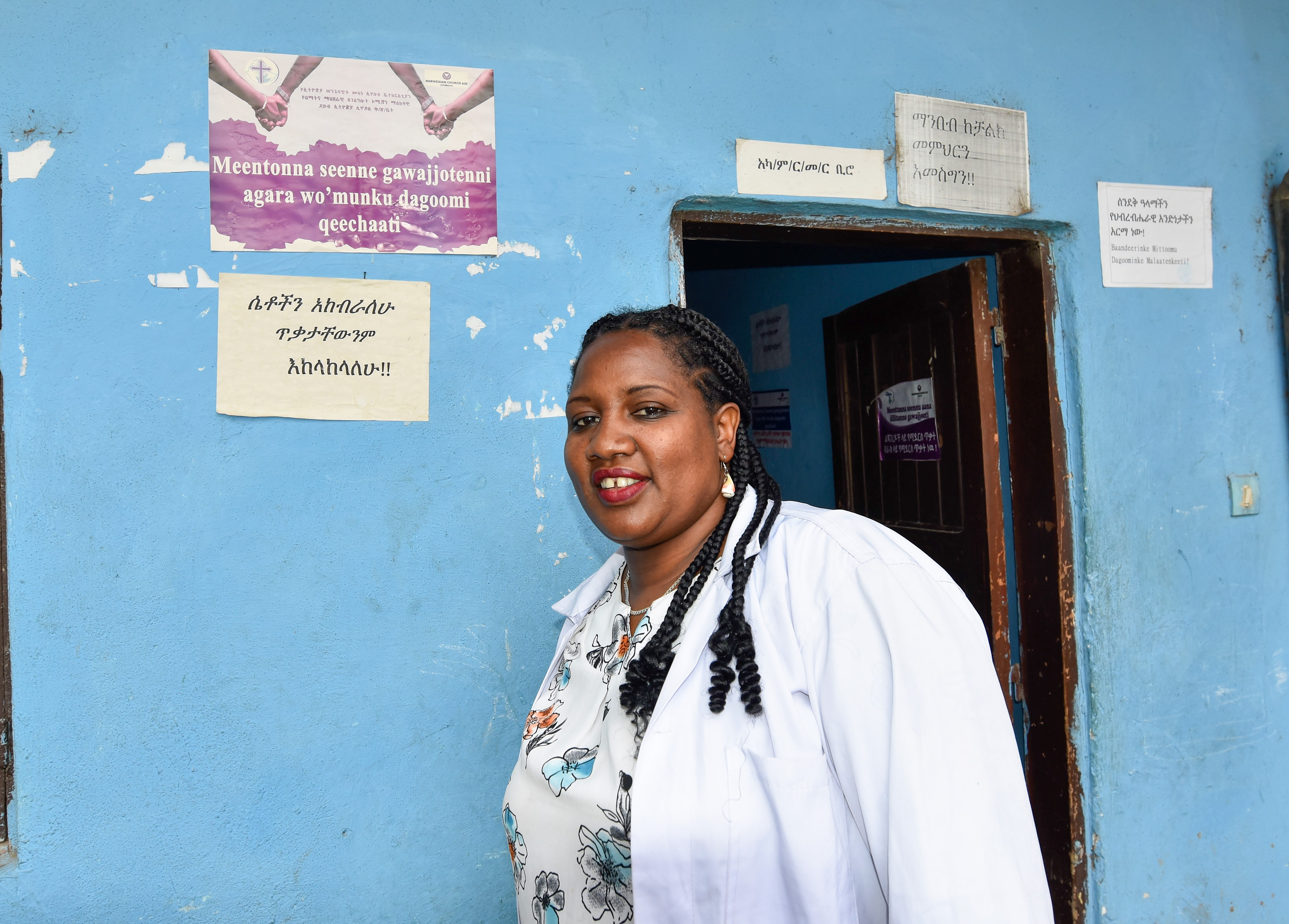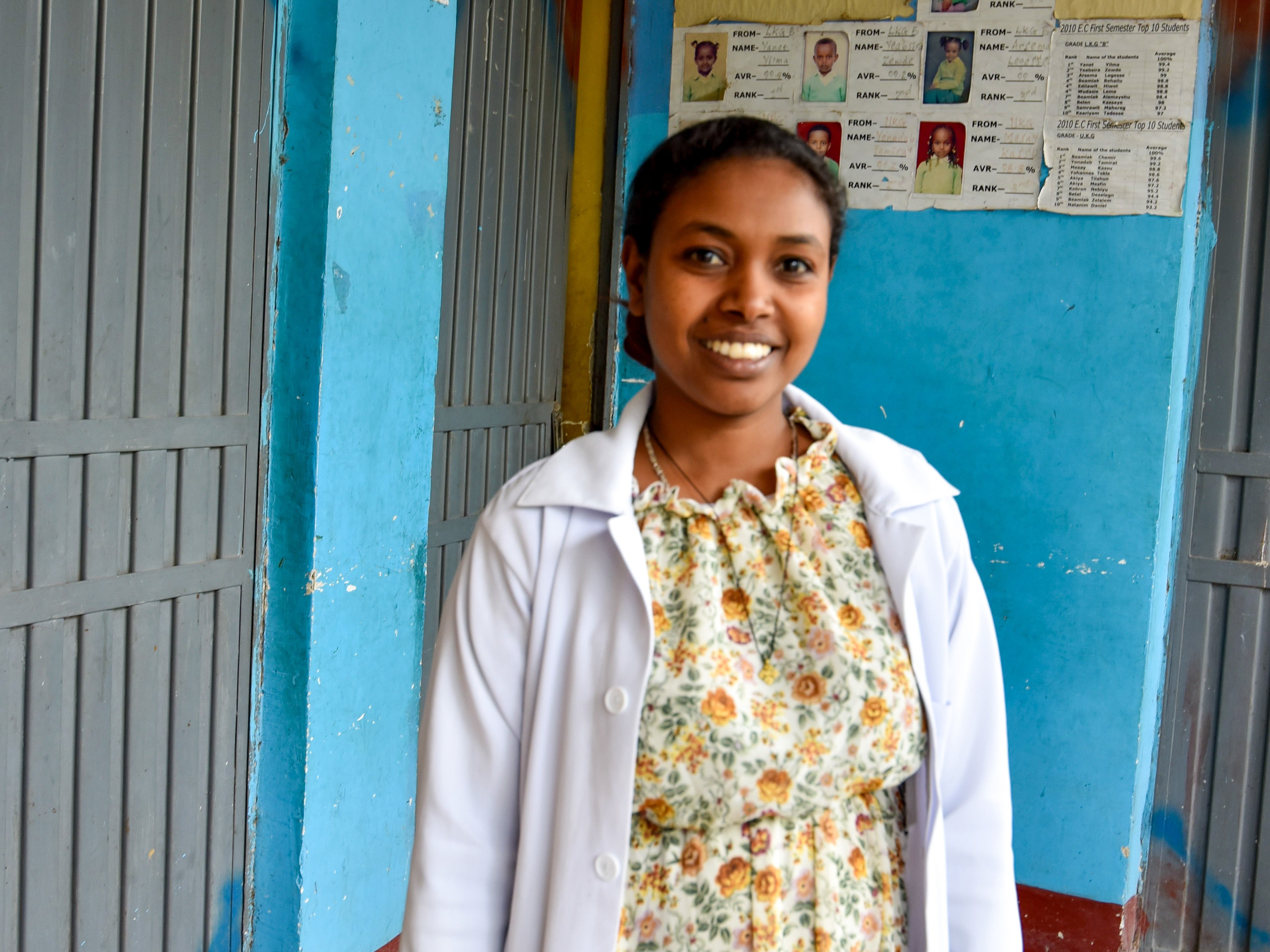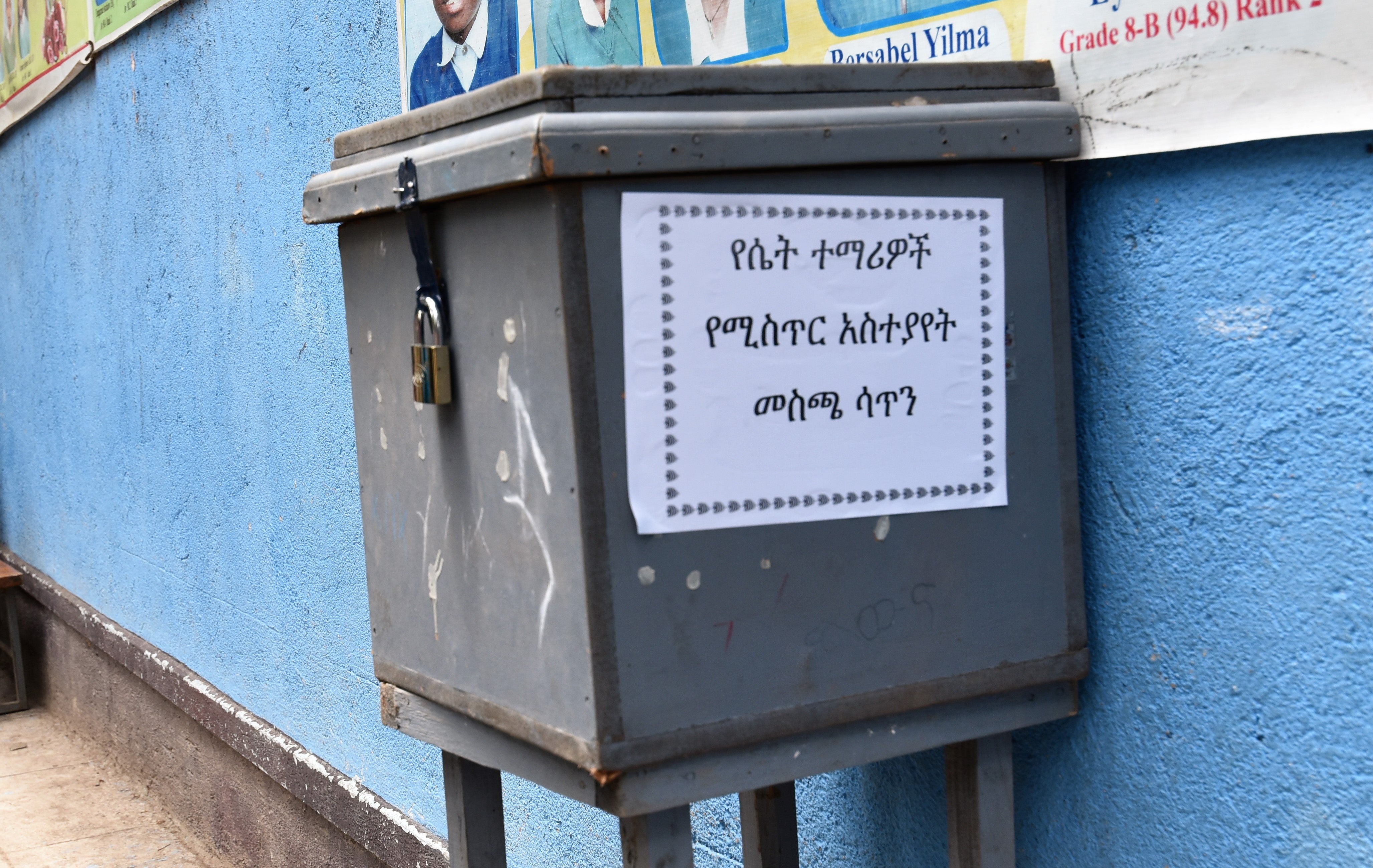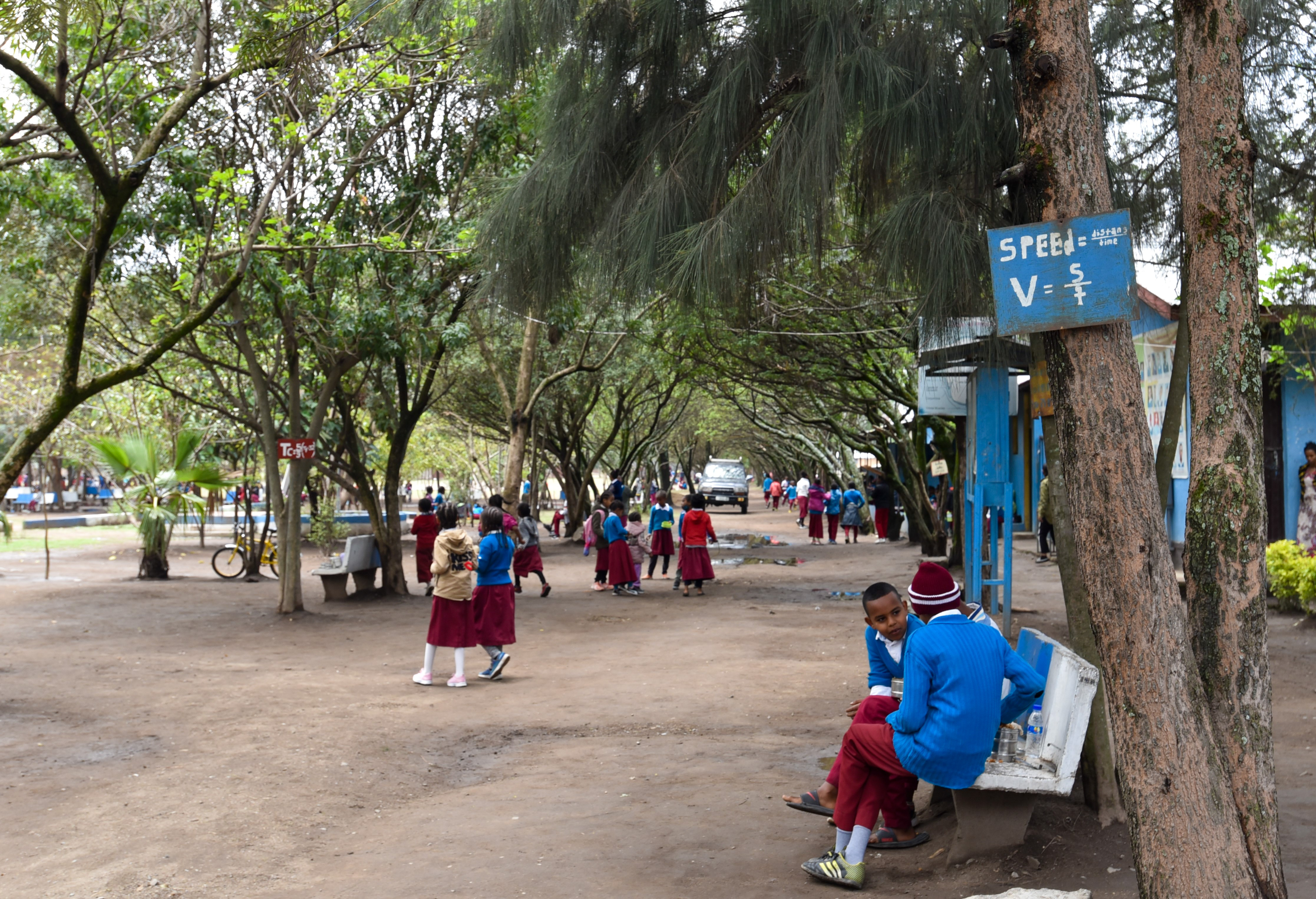“We are grateful that the project addressed various aspects ranging from enhancing the knowledge of the school community around VAWG, empowering girls to cope with peer pressure and helped students especially girls be confident, focus on their school and improve their results. We are also involving boys to make them pledge for allegiance in fighting VAWG and promoting respectful relationship in the school environment and outside.” Ms Eskedar concluded.
Preventing and responding to Gender Based Violence in schools through school-based intervention
Date:
Ms Yenenesh Dangamo is a principal at Bethlehem Primary School, a public school with 1237 students, located in in Hawassa city, Sidama region of Ethiopia. She also manages school clubs focusing on various themes and interests, among which is a Gender Club.

The school is one of the 13 schools in the city with which the Norwegian Church Aid (NCA), in partnership with Ethiopian Evangelical Church Mekane Yesus-Development and Social Service Commission (EECMY-DASSC) and the Ethiopian Orthodox Church (EOTC), is undertaking a school related Gender Based Violence (SRGBV) prevention work. The school based GBV prevention activities are being undertaken as part of the UN Women Violence against Women and Girls (VAWG) prevention intervention and the Safe City and Safe Public Spaces Flagship Programme implemented by Norwegian Church Aid (NCA) and its local faith actors with technical and financial support from UN Women Ethiopia Country Office. The project has reached more than 15,000 students through school-based interventions.
Ms Yenenesh believes that the Gender Club has brought positive changes in the school when it comes to SRGBV awareness and the role the school community can play to address it. The training provided for the school community and the incidence reporting mechanism established after the training encouraged the school to identify SRGBV cases perpetrated against female students as well as to further prevent SRGBV incidents from happening to others.
“We teach girls about SRGBV and sexual violence in general, assigned student focal persons in each class and we even started to receive cases happening at homes. There was a student who was raped by her neighbors but told to keep quite when she told her aunt, whom she was living with. She came and reported to us about the incident where we have managed to link her with the sub city Women and Children Affairs Office. They took the case to court and get two of the three perpetrators sentenced.” Ms Yenenesh said.
She also noted that most of the girls in the school were living with relatives who brought them from the countryside to help them with household chores. Few being vulnerable for child labor exploitation, physical harm, and sexual abuse by family members.
“Few students came to us to report attempted rape and harassment at the homes of relatives. We managed to counsel and reunite them with their biological parents to ensure they are protected.” Ms Yenenesh added.
She also noted that capacity building trainings to enhance their knowledge and the material support they have got from the project has enabled them to cascade different trainings for school community and parents, urging the latter that VAWG mostly happen within homes, and they must protect children from it.
Ms Eskedar Derbe, a teacher and head of the Gender Club at Holy Trinity Primary and Middle School, said that the Safe City Project’s SRGBV intervention has enabled them to strengthen awareness on SRGBV and gender related activities they have been doing.

“In the past three years, we have received several VAWG awareness trainings through the project where school community and coordinators of the school clubs were trained. We also got equipment for school mini media. The knowledge we got also enabled us to include SRGBV and adopt school code of conduct where perpetrators in the school will be dismissed from school and handed over to law enforcement” Ms Eskedar said. She also noted that they have seen changes in the students where their knowledge on VAWG has been enhanced.

“We also set up a secret box where students can anonymously report any incidents happening in the school or at homes. We have received few cases including a coercion by one person on our student and harassment on the other, both around their homes. We have intervened and saved both girls in these cases. ” Ms Eskedar added.

UN Women Ethiopia is implementing VAWG prevention and safe city and safe public spaces flagship programme in Hawassa since 2019. The programme created a momentum in Hawassa city in prevention and response to sexual violence and other forms of violence against women and girls through engagement the city administration, bureau of women and social affairs, education, transport, justice, health sector, faith-based organizations, and civil society organizations. Thirteen schools and college gender clubs in the city were supported with capacity building trainings, mini media materials and furniture to promote positive attitude and respectful relationships in the school environment, to strengthen gender club activities and to enhance the efforts of teaching institutions in creating safe environment for women and girls.
The initial project in Hawassa was supported by Department for International Development (DFID) in 2019 and leveraged funding from Governments of Denmark, Government of Spain and UN Women strategic note donors including Netherlands, Norway, and Sweden to continue the implementations of the interventions as part the border EVAWG programme.